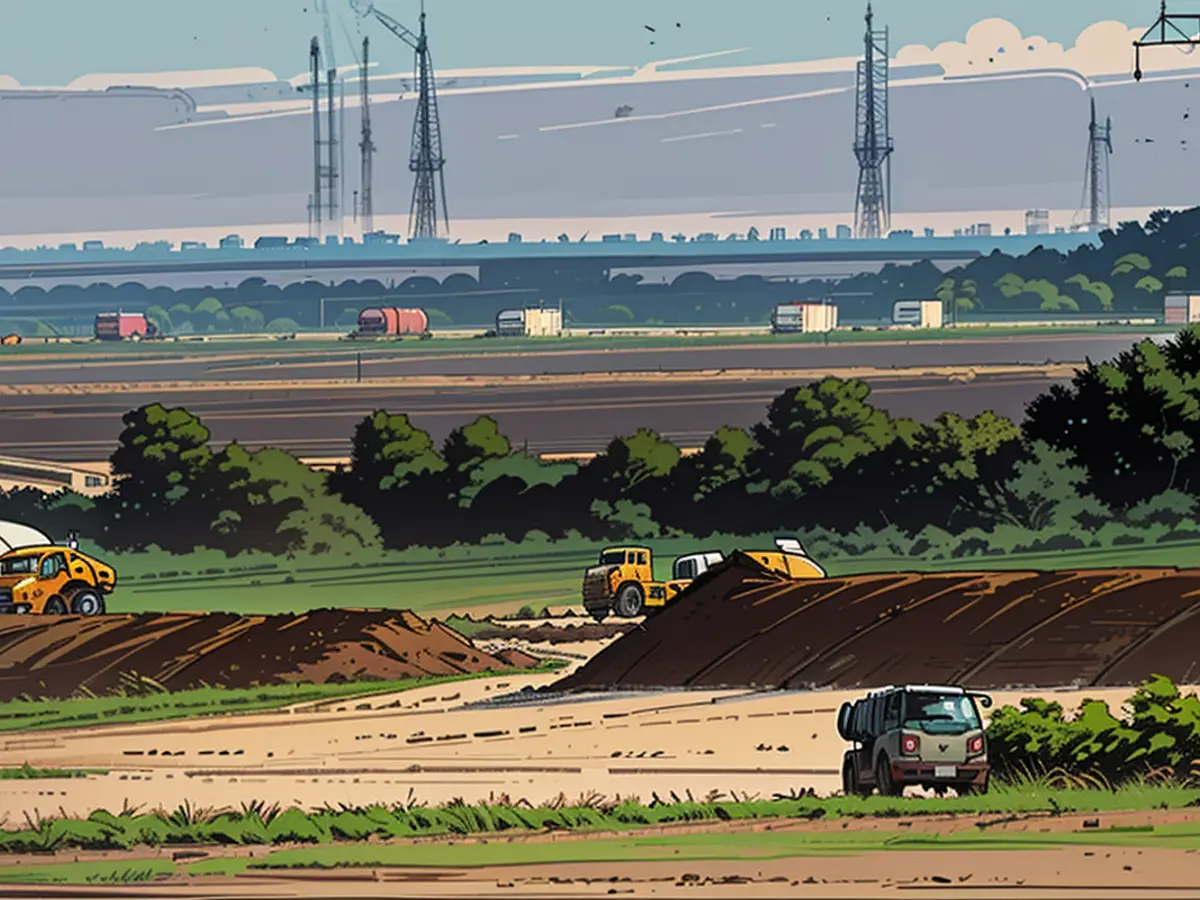Intel halts building process of a semiconductor plant in Magdeburg
The German government had eagerly intended to shell out a generous ten billion euros to entice tech giant Intel into setting up shop in East Germany. Unfortunately, Intel seems to have had second thoughts, leaving the ambitious Magdeburg project in limbo.
Intel's CEO, Pat Gelsinger, revealed that construction of the much-awaited facility might be delayed by a staggering two years. Intel is currently grappling with financial losses and has implemented a cost-saving measure to mitigate the impact. Originally, plans called for building two factories in Saxony-Anhalt, with the first breaking ground in 2022, potentially creating around 3,000 jobs.
The projected investment for the initial factory was a massive 30 billion euros. The German government had agreed to provide state aid of 9.9 billion euros in support of the relocation last year. Just a short while ago, Gelsinger had proudly stated that cutting-edge production methods would be employed in Magdeburg, allowing Intel to rival industry leaders. The groundbreaking ceremony was slated for 2022, with production anticipated to commence some time in 2027 or 2028.
However, Intel reported a staggering billion-dollar loss in the last quarter and financial analysts predict further deficits. To combat this, Gelsinger announced that around 15,000 jobs would be eliminated, reducing the workforce by approximately 15%. He aims to save more than ten billion dollars by the following year. For the interim, Intel has suspended its plans for expansion in Poland while focusing on investing in new factories in the USA and collaborating with Amazon's cloud division to develop new chips.
Intel's new strategic direction
A construction permit for the Magdeburg factories had already been obtained, following an extensive assessment of a 2,000-page application and public consultations with interest groups and municipalities. Pending approval by the EU Commission for funding from the German government, representatives from Saxony-Anhalt expressed optimism that the EU would release the aid before year-end, allowing construction to commence.
Gelsinger's vision for Intel involves the company becoming a premier contract manufacturer for other chip providers. Intel intends to master advanced production processes to compete aggressively with established players such as TSMC from Taiwan. Construction in Magdeburg was an essential component of these plans.
Intel previously held a commanding position in the chip market but eventually fell behind. A critical turning point was losing ground in the smartphone market. Intel aimed to leverage its prowess in the PC sector to the mobile device arena, but more energy-efficient processors eventually triumphed. As a result, the processors for smartphones no longer come from Intel but from competitors such as Qualcomm or TSMC.
The economic impact of Intel's financial losses and cost-saving measures on the German economy is a concern, considering the significant state aid of 9.9 billion euros pledged for the Magdeburg project. The delay in the construction of the Intel facility in Magdeburg could potentially affect the creation of around 3,000 jobs in Saxony-Anhalt.








